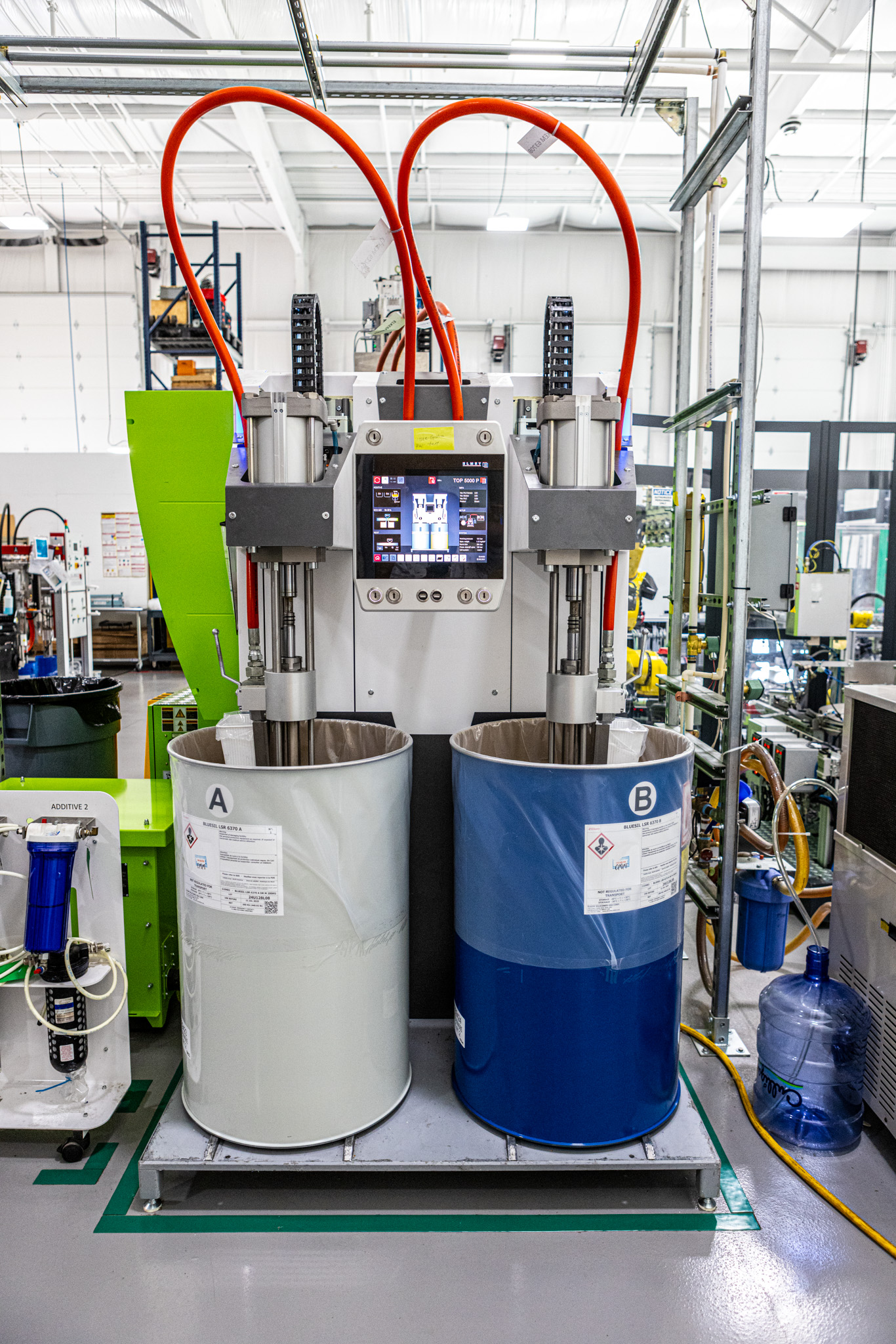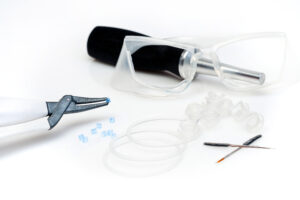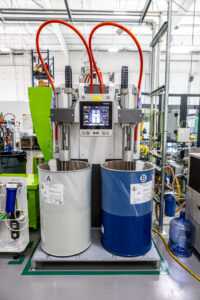
The Future of Medical Manufacturing: Liquid Silicone Rubber in Healthcare
In the rapidly evolving field of medical technology, the materials used in manufacturing play a critical role in ensuring both the safety and effectiveness of medical devices. Among these materials, Liquid Silicone Rubber (LSR) has emerged as a game-changer in medical manufacturing. Its unique properties make it an ideal choice for a wide range of healthcare applications, from implants to diagnostic tools. In this blog post, we will explore why LSR is revolutionizing medical manufacturing and how it benefits both manufacturers and patients. ![]()
What is Liquid Silicone Rubber?
Liquid Silicone Rubber is a high-performance elastomer known for its exceptional properties. Unlike traditional silicone rubber from gum stock, LSR is a two-part, liquid material that cures at room temperature or with heat (i.e., higher temperature results in faster cure). It offers a range of advantages that make it particularly well-suited for medical applications.
Why Choose LSR for Medical Manufacturing?
Biocompatibility: One of the most crucial factors in medical device manufacturing is biocompatibility. LSR is inherently biocompatible, meaning it is well-tolerated by the human body and is less likely to cause allergic reactions or adverse effects. This makes it ideal for devices that come into direct contact with tissues or bodily fluids.
Sterilization: LSR can withstand various sterilization methods, including steam autoclaving, gamma radiation, and ethylene oxide treatment. This is essential for ensuring that medical devices remain free from contaminants and are safe for use.
Durability and Longevity: LSR is known for its excellent durability, resistance to aging, and stability over time. It maintains its physical properties even after prolonged exposure to heat, cold, chemicals, and mechanical stress. This longevity is particularly important for implants and other long-term medical devices.
Flexibility and Comfort: The flexibility of LSR allows for the creation of highly detailed and intricate designs, which can be crucial for patient comfort and device functionality. Its softness and elasticity can enhance the overall experience for patients using devices such as wearable sensors or prosthetics.
Precision Manufacturing: LSR is compatible with advanced manufacturing techniques, such as injection molding, which enables the production of complex and precise components. This precision is essential for the intricate parts used in medical devices and diagnostics.
Applications of LSR in Medical Devices
Implants and Prosthetics: LSR’s biocompatibility and durability make it an excellent choice for implants and prosthetics. It is used in everything from dental implants to breast implants, providing a safe and long-lasting solution for patients.
Diagnostic Equipment: The flexibility and precision of LSR are advantageous for diagnostic tools, such as fluidic devices and assay components. Its ability to be molded into complex shapes allows for the creation of sophisticated and reliable diagnostic systems.
Wearable Health Devices: For wearable health devices like glucose monitors and heart rate sensors, LSR’s comfort and flexibility enhance user experience. Its resistance to environmental factors ensures that these devices remain functional and reliable over time. 
Surgical Tools and Accessories: LSR is used in various surgical tools and accessories, including handle grips, introducer valves, and seals. Its non-reactive nature and ability to withstand repeated sterilization make it ideal for these applications.
Challenges and Considerations
While LSR offers numerous benefits, it is essential to consider the associated challenges. The initial cost of LSR and the complexity of its manufacturing process can be higher compared to other materials. Additionally, ensuring that all components meet stringent regulatory requirements is crucial for successful medical device development.
The Future of LSR in Medical Manufacturing
As technology continues to advance, the use of LSR in medical manufacturing is expected to grow. Innovations in material science and manufacturing techniques will likely further enhance its capabilities and applications. For manufacturers, staying ahead of these developments and leveraging the advantages of LSR can provide a competitive edge in the medical device industry. 
Liquid Silicone Rubber represents a significant advancement in medical manufacturing. Its biocompatibility, durability, and flexibility make it an ideal material for a wide range of medical devices. As the healthcare industry continues to evolve, LSR will undoubtedly play a pivotal role in shaping the future of medical technology.
Start Your Next LSR Medical Manufacturing Project With Gulf Today!
At Gulf, we are committed to leveraging the latest advancements in rubber engineering to provide high-quality solutions for the medical industry. Our expertise in working with Liquid Silicone Rubber ensures that we deliver products that meet the highest standards of safety and performance. Contact gulf for more information on how we can assist with your medical manufacturing needs!
